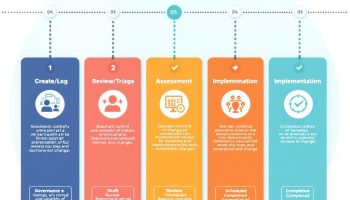
Program Management Degrees: A Pathway to Strategic Leadership
Program management degrees equip professionals with advanced methods for coordinating complex initiatives across organizations. These qualifications build expertise in strategic planning, risk management, and resource optimization while providing credentials for career advancement in today’s competitive job market.
Business Impact and Organizational Necessity
Program management degrees have become essential in corporate settings where coordinated execution of multiple projects directly affects business outcomes. Companies investing in employees with these qualifications gain advantages through better project alignment with business goals, improved resource use, and more reliable delivery of complex initiatives. The cross-functional leadership skills developed through program management degrees enable you to work effectively in matrix organizations, handle stakeholder expectations across departments, and drive change while maintaining stability. As companies face growing complexity in global markets, professionals with program management degrees become valuable assets in turning strategic vision into measurable results.
Program management degrees teach you to see the bigger picture beyond individual projects. You’ll learn to identify dependencies between initiatives and create frameworks that support consistent execution across diverse teams. This strategic perspective helps organizations avoid the common pitfalls of siloed project execution.
The skills gained through program management degrees transfer across industries. Whether you’re in technology, healthcare, construction, or financial services, the core principles of program management remain consistent while adapting to specific industry challenges.
Explore 5 Essential Benefits of Program Management Degrees: Elevate Your Career Today!
In today’s competitive job landscape, obtaining a program management degree is more than just academic achievement; it’s a strategic move towards career advancement. This section highlights five key benefits that come with earning such degrees, each designed to enhance your skillset and professional value. From versatile learning formats that fit your busy lifestyle to comprehensive skill development that prepares you for real-world challenges, you’ll discover how these programs can transform your career trajectory.
Furthermore, we’ll delve into the alignment with professional certifications, the opportunities for enhanced career mobility, and the emphasis on practical application. Discover how pursuing a program management degree can help you unlock significant career opportunities and position yourself for success in an evolving job market.
1. Versatile Learning Formats That Fit Your Life
Program management degrees now offer unprecedented flexibility to accommodate busy professionals seeking career advancement. You can choose from online options with asynchronous learning that allow you to study when it fits your schedule, whether early morning or late evening. For those preferring in-person interaction, evening and weekend classes make pursuing program management degrees possible while maintaining full-time employment.
Many institutions have developed hybrid formats that blend the convenience of virtual learning frameworks with the engagement of classroom instruction. These innovative approaches ensure you don’t have to choose between quality education and work obligations. Accelerated degree completion pathways further enhance flexibility, enabling you to earn your credentials faster through intensive coursework and program structure optimization.
The adaptability of these learning formats makes program management education accessible regardless of your location, work schedule, or personal commitments. Consider these options when evaluating which format aligns best with your professional goals and lifestyle needs.
2. Comprehensive Skill Development
Earning program management degrees equips you with a diverse skill set essential for career advancement. These degrees emphasize methodologies for effective project planning and execution, giving you frameworks to manage complex initiatives across various industries. Risk management training becomes a cornerstone of your expertise, teaching you to identify and mitigate potential issues before they impact project outcomes.
Leadership skills development forms a critical component of program management education, preparing you to guide teams through challenging project phases. Many programs incorporate project leadership training that distinguishes successful managers from merely competent ones.
Financial analysis capabilities gained through these degrees enable you to create realistic budgets and track performance metrics effectively. You’ll also master stakeholder communication techniques essential for managing expectations and securing buy-in from diverse groups.
Key skills typically developed include:
- Strategic resource allocation
- Cross-functional team coordination
- Risk response strategy development
- Performance measurement frameworks
- Conflict resolution techniques
Expert Insight: Invest in comprehensive skill development through program management degrees to enhance your project execution and risk management abilities. Focus on cultivating leadership and financial analysis skills to effectively allocate resources and engage stakeholders. Master these competencies to elevate your career and differentiate yourself in a competitive job market.
3. Enhanced Career Mobility
Earning program management degrees creates significant career advancement opportunities across multiple sectors. Your specialized education equips you with the expertise needed to pursue senior management roles that might otherwise remain out of reach. The cross-industry transferable skills gained through these programs make you a valuable asset in virtually any business environment, from healthcare to technology.
With program management qualifications, you can expect a **higher salary potential** compared to professionals without specialized credentials. According to industry data, program managers with degrees often command 15-25%** higher compensation than their non-degreed counterparts. Your educational investment also delivers expanded professional connections through alumni networks and industry partnerships.
The global perspective offered in many program management degrees prepares you for international project leadership opportunities, especially as organizations increasingly manage cross-border initiatives. These qualifications help you:
- Navigate complex organizational structures
- Develop strategic business acumen
- Master resource allocation across multiple projects
- Implement enterprise-wide initiatives
- Build advanced stakeholder management techniques
Expert Insight: Earning a program management degree enhances your career mobility by opening doors to senior roles across various sectors. These qualifications boost your salary potential by 15-25% and expand your professional network, while equipping you with skills for global project leadership and complex organizational challenges. Invest in your future today.
4. Professional Certification Alignment with Program Management Degrees
Pursuing program management degrees offers substantial advantages when preparing for industry certifications. Your degree coursework often directly aligns with certification requirements, creating a seamless pathway toward **professional** credentials. Program management degrees integrate key concepts that prepare you for PMP certification examinations, giving you a solid foundation in project methodology and best practices. The coursework typically covers material necessary for PMI-ACP certification readiness, allowing you to demonstrate agile expertise in your career.
Many degree programs also incorporate project management software training that’s valuable for certification exams. When exploring PRINCE2 qualification pathways, your academic knowledge provides context for understanding these structured methodologies. The industry-recognized credentials you can obtain after completing your degree significantly enhance your marketability to employers seeking qualified program managers.
Program management degrees often qualify for continuous education credits, allowing you to maintain certifications throughout your career. This certification alignment helps you understand project and program differences at a deeper level, making you more effective in various organizational contexts.
Expert Insight: Pursuing a program management degree aligns closely with industry certification requirements, streamlining your path to credentials like PMP and PMI-ACP. The integrated coursework not only prepares you for exams but also enhances your marketability. Additionally, many programs offer continuous education credits, ensuring ongoing professional development.
5. Real-World Application Focus
Program management degrees deliver tangible career benefits through their practical focus on real-world applications. These specialized programs help you bridge the theoretical-practical gap by collaborating with actual industry partners on capstone projects that simulate the complexities of managing multiple projects simultaneously. Many program management degrees feature case study-based learning approaches where you analyze authentic scenarios from various industries, applying advanced frameworks to develop strategic planning solutions for complex challenges.
The curriculum typically includes valuable internship opportunities that allow you to apply program management methodologies in professional settings while building your professional network. Most degrees also incorporate program portfolio management tools through mentorship programs pairing you with experienced professionals who provide guidance on navigating organizational complexities and stakeholder management. Throughout your studies, you’ll develop a comprehensive professional portfolio showcasing your ability to coordinate interdependent projects and deliver organizational value—essential for demonstrating your capabilities to potential employers in the competitive program management field.
Expert Insight: Enhance your program management degree by actively engaging in real-world projects and internships. Collaborate with industry partners to apply theoretical concepts, utilize program portfolio management tools, and build a strong professional network. A comprehensive portfolio showcasing your project coordination skills will make you stand out to potential employers.
Benefits of Program Management Degrees
Program management degrees offer a comprehensive pathway to career advancement through flexible learning formats, diverse skill development, enhanced career mobility, certification alignment, and real-world application focus. These specialized qualifications equip professionals with the strategic capabilities to manage complex, interdependent projects while developing essential leadership and risk management competencies.
Advantages for Businesses
For businesses and enterprises, program management degrees provide essential expertise needed to coordinate multiple projects, optimize resource allocation, and deliver organizational value in increasingly complex operational environments. Organizations benefit from employees with program management qualifications through:
- Improved project success rates
- Strategic alignment of initiatives with business goals
- Enhanced ability to navigate cross-functional challenges across departments and global operations
Program management degree holders bring valuable skills in stakeholder management, financial analysis, and risk mitigation that directly impact an organization’s bottom line and competitive positioning in the marketplace.






